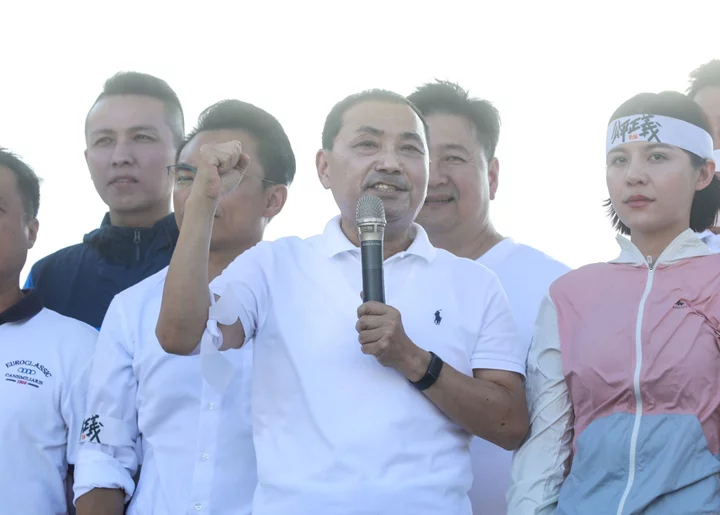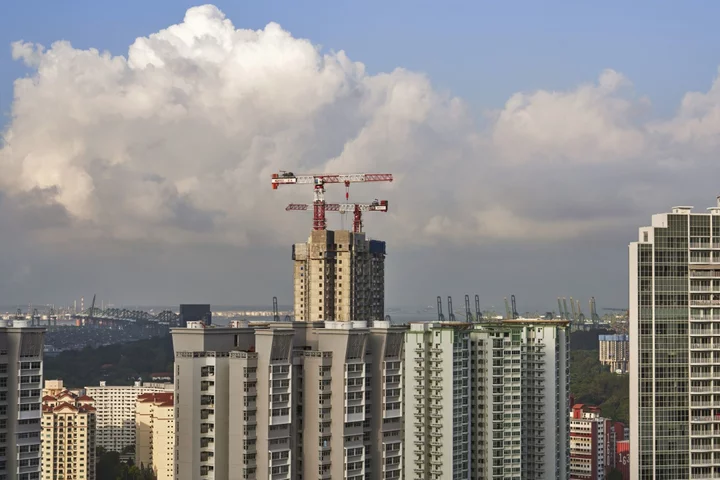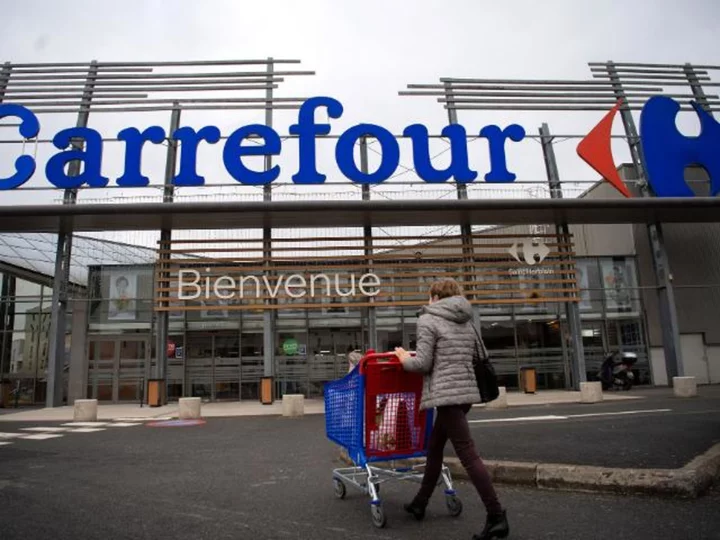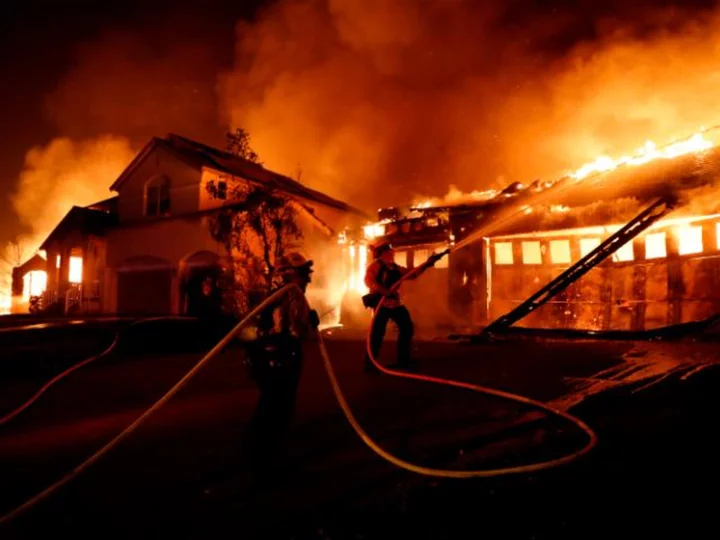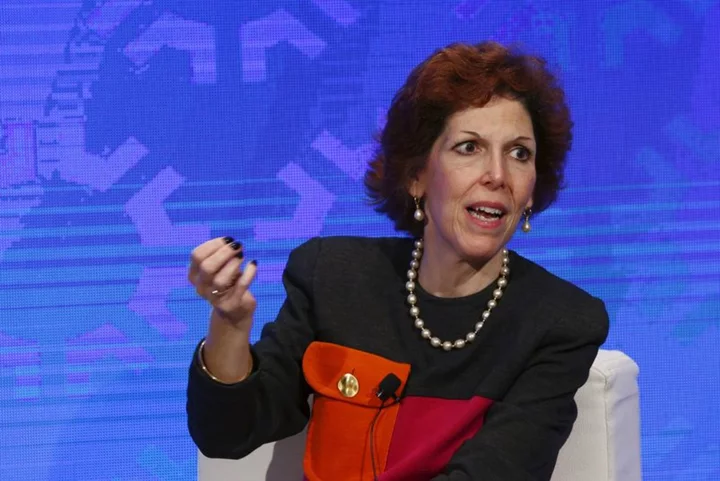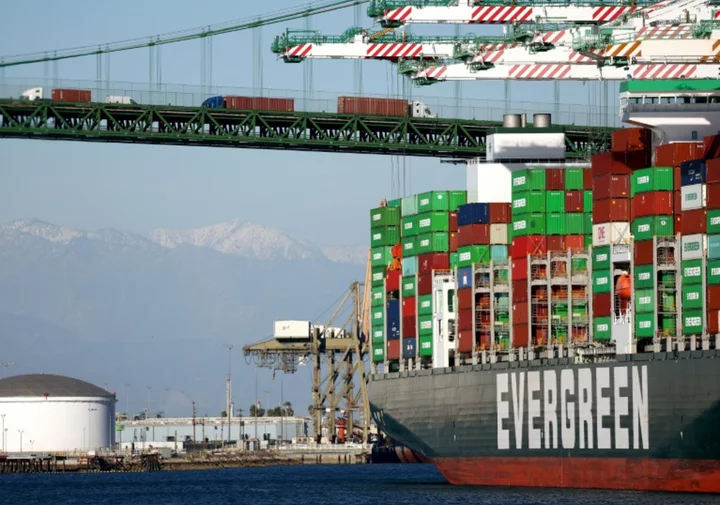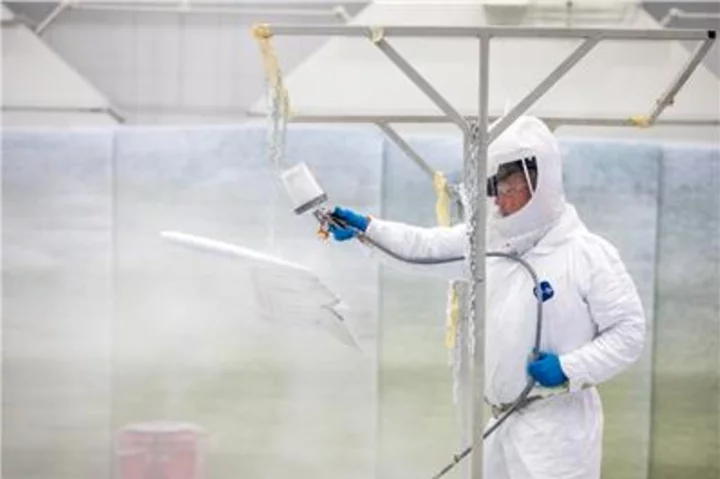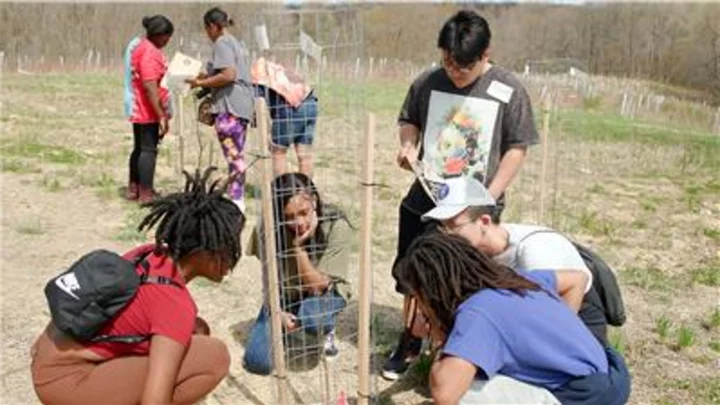At a talk with university students last month, Taiwan opposition candidate Hou Yu-ih was pushed to define a cornerstone of US-China relations that’s maintained peace on his island for decades.
Instead of outlining the contours of Washington’s one-China policy, the mayor and former policeman avoided the question by citing the need to follow the constitution. “The relationship between the two sides of the Taiwan Strait is clear. We don’t need to get it confused,” he added.
His failure to articulate a critical policy at the bedrock of Taiwan’s international status drew widespread criticism online. It also reflected a key voter concern, namely that Hou lacks the expertise to lead in one of the biggest geopolitical flashpoints in the rivalry between Washington and Beijing.
See: Why Taiwan’s 2024 Election Matters From China to US: QuickTake
Those worries are reflected in the polls, where Vice President Lai Ching-te of the ruling Democratic Progressive Party leads and third-party hopeful Ko Wen-je is making inroads with the younger voters that Hou’s evasive replies annoy. Ko sniped after the exchange with the students that Hou should ask an AI chatbot about the US policy, which acknowledges Beijing’s position there’s one China without stating whether its sovereignty extends to Taiwan.
“I’ve been a bit surprised at how under-prepared he seems for this race because I thought two years ago he was the strongest candidate the KMT could put up,” said Kharis Templeman, a research fellow at the Hoover Institution at Stanford University. “His selling point now is simply that whatever needs to be done to get Beijing to speak to the leader of Taiwan, he can do.”
Hou’s campaign said in an email to Bloomberg News that his decades of experience in law enforcement and politics show “he has the ability to have cross-strait exchange and dialogue.”
Despite the early campaign setbacks, Hou is set to be officially confirmed as the KMT’s candidate at a party congress on Sunday. That milestone could help the KMT put aside factional rifts and rally behind Hou, potentially rejuvenating his campaign.
Top Cop
Hou, 66, has built a public image as a pragmatic, down-to-earth policeman. He played a key role in handling some of the island’s most high-profile criminal cases, including a tense episode involving a gangster taking a South African military attache and his family hostage.
Those accomplishments put him on the radar of kingmakers in the KMT, the political group that fled the mainland some 70 years ago. Today, it is Beijing’s preferred negotiating partner on the self-ruled island that Chinese President Xi Jinping has vowed his nation must control someday.
In 2018, Hou was elected mayor of New Taipei City. During his tenure he was credited with practical improvements such as converting a large junkyard from a notorious eyesore into green spaces. Last year, he had a 70% satisfaction rating in polls.
That helped him become the KMT’s ideal contender to reclaim the presidency after the DPP’s Tsai Ing-wen won the past two elections. In May, the party named Hou its candidate without holding an open primary that risked being divisive.
The KMT’s previous president, Ma Ying-jeou, oversaw a historic expansion of ties with Beijing, and even met with Xi in 2015 — the first such summit since the two sides clashed in a civil war.
Hou has signaled he’d seek a return to those warmer relations. At a campaign event this month, he vowed to “ensure stability and peace across the strait.” He also stated for the first time that he accepted the tacit understanding between China and the KMT known as the “1992 consensus,” which says there is just one China, although the two sides differ on their definition of that country.
During Tsai’s more than seven years at the helm, tensions with Beijing surged. Last year, she welcomed the first US House Speaker to the island in 25 years, prompting China to respond with military drills. President Joe Biden has repeatedly said he’d defend the democracy of 23 million people, part of the reason China has accused the White House of changing its position on Taiwan.
Hou’s pitch to voters is that he’ll dial back tensions. He says that would not only reduce the threat of war but also have other benefits, such as reopening markets for Taiwan exporters after China banned some food imports to exert economic pressure on Tsai.
“It seems like Hou’s going to be the person who’s appealing to the KMT official stance,” said Wei-Ting Yen, assistant professor in the Government Department at Franklin & Marshall College in Pennsylvania. “For older KMT supporters, that image of ensuring the stability of society, he is a symbol of that.”
Unknown Quantity
One of Hou’s biggest disadvantages is he’s largely untested in international diplomacy and relatively unknown in Washington, Taiwan’s main security backer and source of the military hardware needed to deter China from attacking.
Last month, the top US liaison to Taiwan, Laura Rosenberger, met with Taiwan’s top candidates for president. Hou told her he’d resume some exchanges with China on issues such as education and joint crime-fighting, according to people familiar with the meeting, while stressing his commitment to the island’s US ties.
Also: Xi Woos Taiwan Opposition Ahead of Pivotal Presidential Vote
Still, Hou’s problems appearing confident on the issues linger. This month, he suggested he’d slash mandatory military service back to four months once peace in the strait was ensured — a remark that came after after the Tsai government extended the requirement to one year. He later had to clarify his stance, prompting critics to accuse him of backtracking.
James Chen, an assistant professor of international relations at Tamkang University and an adviser to Hou, said the KMT candidate was open to learning about issues and “fully trusts the experts who can offer him good policy proposals.”
With some six months left in the campaign to be Taiwan’s next president, Hou has time to right the ship. The key to any turnaround will be showing he can be a steady hand in the fraught relationship between two nuclear-armed powers.
Yen, the academic at Franklin & Marshall College, said: “He definitely has to have a clear statement or a message on how he is going to deal with China and the US.”

